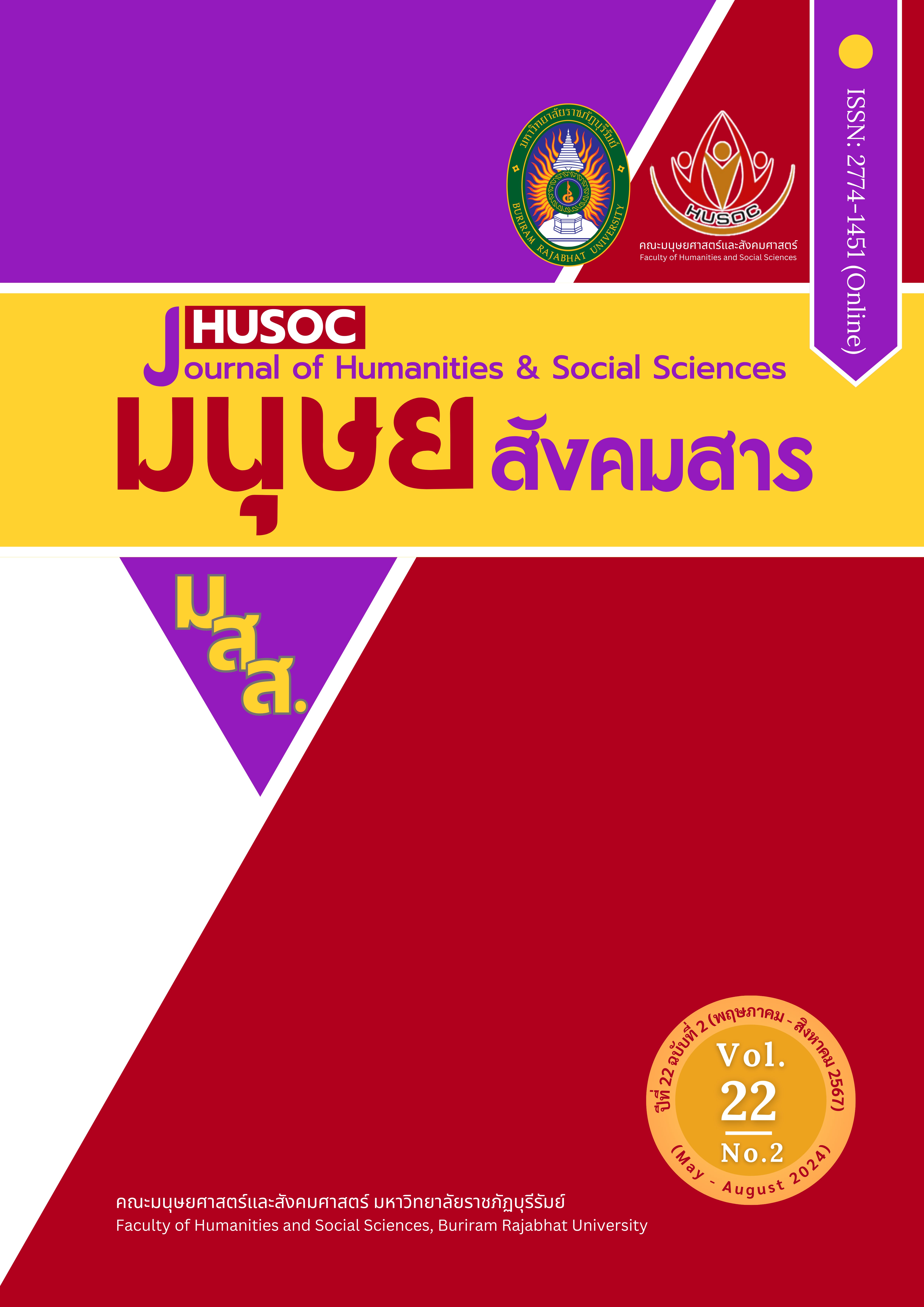การนำนโยบายรัฐบาลดิจิทัลไปปฏิบัติ: การพัฒนากระบวนการสอบบัญชี เพื่อรองรับการก้าวเข้าสู่การเป็นผู้สอบบัญชีดิจิทัล
Main Article Content
บทคัดย่อ
ปัจจุบันหน่วยรับตรวจใช้เทคโนโลยีในการบริหารจัดการองค์กร ผู้สอบบัญชีใช้วิธีการตรวจสอบโดยเน้นที่การตรวจสอบจากเอกสารหลักฐานเป็นส่วนใหญ่ แต่ไม่ได้เน้นที่การตรวจสอบฐานข้อมูลของระบบสารสนเทศที่หน่วยรับตรวจใช้ ส่งผลให้หลักฐานที่ผู้สอบบัญชีได้รับอาจไม่เพียงพออย่างเหมาะสม ซึ่งส่งผลต่อการ แสดงความเห็นของผู้สอบบัญชี การวิจัยนี้มีวัตถุประสงค์เพื่อศึกษาการพัฒนากระบวนการสอบบัญชีรองรับการเป็นผู้สอบบัญชีดิจิทัล ประชากรในการวิจัยครั้งนี้ คือ ผู้สอบบัญชีสหกรณ์ที่ปฏิบัติงานสอบบัญชีของสหกรณ์และกลุ่มเกษตรกรในประเทศไทย จำนวน 380 คน กลุ่มตัวอย่างจำนวน 190 คน สุ่มตัวอย่างแบบอาศัยความน่าจะเป็น ใช้ระเบียบวิธีการวิจัยเชิงปริมาณ เก็บรวบรวมข้อมูลโดยใช้แบบสอบถาม การวิเคราะห์ข้อมูลดำเนินการด้วยโปรแกรมคอมพิวเตอร์ โดยใช้สถิติเชิงพรรณนาและสถิติอนุมาน ประกอบด้วย ค่าความถี่, ค่าสถิติร้อยละ, ค่าเฉลี่ย, และค่าความเบี่ยงเบนมาตรฐาน การวิเคราะห์การถดถอยพหุคูณแบบปกติ ผลการวิเคราะห์พบว่ากระบวนการตรวจสอบบัญชี ภาพรวมอยู่ในระดับมากที่สุด ( x̄ = 4.73 , S.D. = 0.55) เมื่อวิเคราะห์ความสัมพันธ์ระหว่างตัวแปร พบว่าทุกการเพิ่มขึ้นขององค์ประกอบของรัฐบาลดิจิทัล 1 หน่วย จะทำให้การพัฒนากระบวนการสอบบัญชี เพื่อรองรับการก้าวเข้าสู่การเป็นผู้สอบบัญชีดิจิทัล (Cyber Auditor) เพิ่มขึ้น 0.35 หน่วย ทุกการเพิ่มขึ้นของตัวแบบด้านการจัดการ 1 หน่วย จะทำให้การพัฒนากระบวนการสอบบัญชี เพื่อรองรับการก้าวเข้าสู่การเป็นผู้สอบบัญชีดิจิทัล (Cyber Auditor) เพิ่มขึ้น 0.24 หน่วย
Article Details

อนุญาตภายใต้เงื่อนไข Creative Commons Attribution-NonCommercial 4.0 International License.
เนื้อหาและข้อมูลในบทความที่ลงตีพิมพ์ในวารสารทดสอบระบบ ThaiJo2 ถือเป็นข้อคิดเห็นและความรับผิดชอบของผู้เขียนบทความโดยตรงซึ่งกองบรรณาธิการวารสาร ไม่จำเป็นต้องเห็นด้วย หรือร่วมรับผิดชอบใดๆ
บทความ ข้อมูล เนื้อหา รูปภาพ ฯลฯ ที่ได้รับการตีพิมพ์ในวารสารทดสอบระบบ ThaiJo2 ถือเป็นลิขสิทธิ์ของวารสารทดสอบระบบ ThaiJo2 หากบุคคลหรือหน่วยงานใดต้องการนำทั้งหมดหรือส่วนหนึ่งส่วนใดไปเผยแพร่ต่อหรือเพื่อกระทำการใดๆ จะต้องได้รับอนุญาตเป็นลายลักอักษรจากวารสารทดสอบระบบ ThaiJo2 ก่อนเท่านั้น
เอกสารอ้างอิง
Bielka, C., Helen, W., Jane, B., Ann, M. T., & Alison, C. (2022). Experiences of midwives and nurses when implementing abortion policies:
A systematic integrative review. Midwifery, 111(103363). https://doi.org/10.1016/j.midw.2022.103363
Chonlamath, Th. (2019). Information technology capabilities that affect program use efficiency. A comprehensive accounting framework for accountants in the southern region. Faculty of Accountancy. Sripatum University. [in Thai]
Delufa, T., Jerin., Hasna H. Sara., Marzuk A. Radia., Prianka, S. Hema., Shahriar, H., Salma, A. Urme., Camilla, A., Md. Tanvir, H., & Zahidul, Q. (2022). An overview of progress towards implementation of solid waste management policies in Dhaka, Bangladesh. Heliyon, 8(2). https://doi.org/10.1016/j.heliyon.2022.e08918
Devika, K., Rahul, S., Arshia, K., & P.C. Jha. (2022). Barrier analysis for carbon regulatory environmental policies implementation in manufacturing supply chains to achieve zero carbon. Journal of Cleaner Production, 358(131910), https://doi.org/10.1016/j.jclepro.2022.131910
Luke, N., Allen, Simon, W., & Hampus, H. (2022). Assessing the association between Corporate Financial Influence and implementation of policies to tackle commercial determinants of non-communicable diseases: A cross-sectional analysis of 172 countries. National Library of Medicine, 297(114825). doi: 10.1016/j.socscimed.2022.114825
Nittaya, Ph. (2018). Impact of technology integration capabilities. Check available Regarding the audit results of certified public accountants in Thailand Faculty of Management Science and Information Technology. Nakhon Phanom University. [in Thai]
Nunnally, J. C. (1978). Psychometric theory, 2nd ed. New York: McGraw-Hill.
Prasutta, N, (2021). Competencies of accountants in the digital age: skills for adapting in a changing world. Journal of Liberal Arts and Management Sciences, 8(2). [in Thai]
Rewat, S, (2019). On the path of developing e-government in Thai society in the digital age. Academic Journal of Humanities and Social Sciences, 27(55). [in Thai]
Thanongsak, M. (2020). Thai E-Government: Changing Definition and Development. Inthanin Thaksin Journal, 15(2), 129-152. [in Thai]
Yifei, Y., Veronica, J., Devrim, M.Y., & Maria-E.I. (2022). A systematic literature review on Circular Economy implementation in the construction industry: a policy-making perspective. Resources, Conservation and Recycling, 183(106359). https://doi.org/10.1016/j.resconrec.2022.106359


